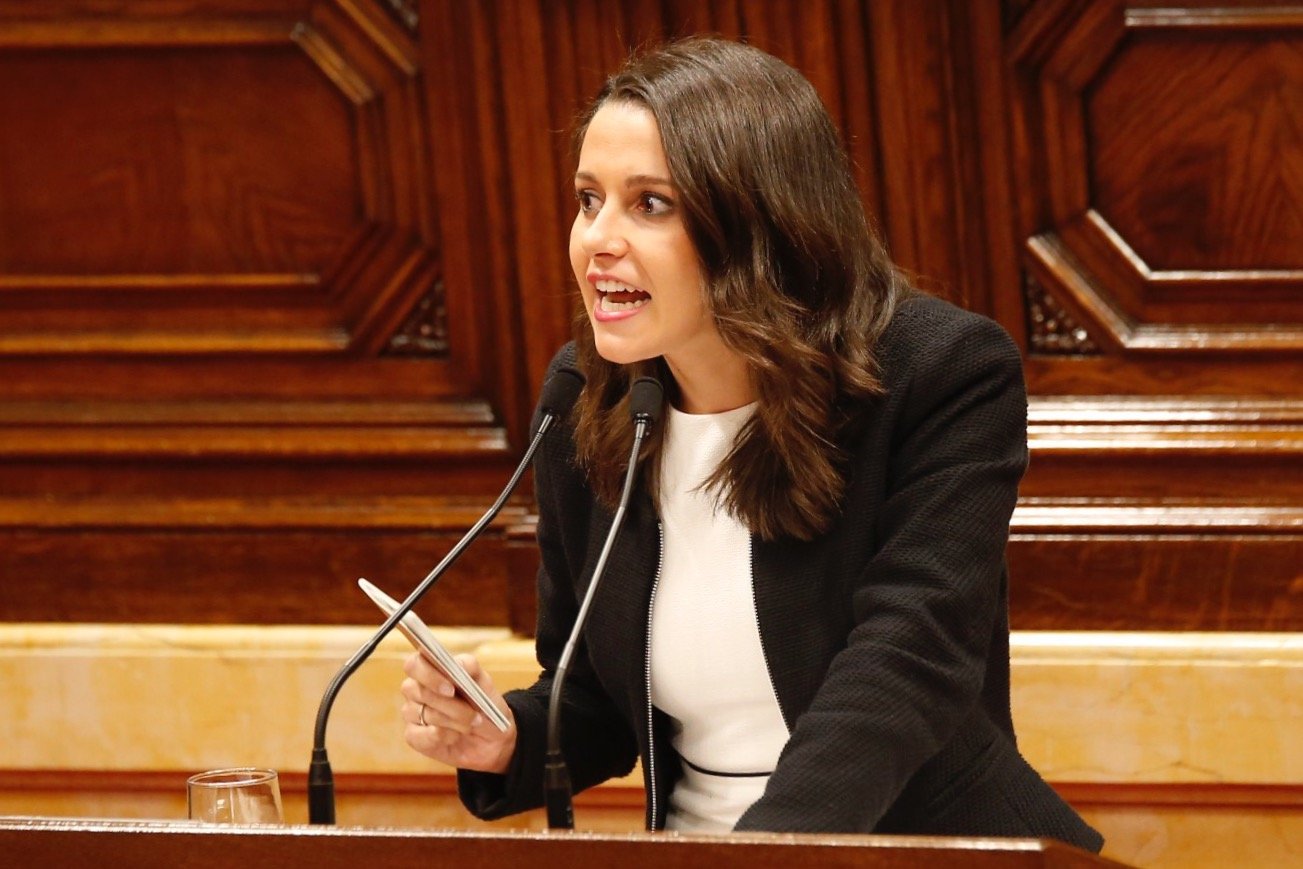There was a variety of response from opposition parties to Catalan president Carles Puigdemont's declaration of independence. Although Puigdemont almost immediately suspended the declaration to open a period of dialogue, Cs (Citizens) and PP (Popular Party) didn't accept his speech and described it as an "attack on democracy". PSC (Socialist Party of Catalonia), for their part, expressed doubts about the validity of the declaration and called for elections in Catalonia, whilst CSQP (Catalonia Yes We Can) were grateful for the suspension and called for "bravery" starting the dialogue period.
Cs call for elections
The leader of Cs in Catalonia, Inés Arrimadas, said that the majority of citizens of Catalonia feel Catalan, Spanish and European and that their party doesn't plan to let them "break their hearts into pieces". She called Puigdemont's statement an "attack on democracy" and, although she recognised it to be a "delayed, conditional declaration", continued that she believes it to be "an attack on common sense".
As such, Arrimadas asked for "democracy to return to Catalonia" through elections. "This isn't about ballot boxes, it's about borders", said the leader, who said she doesn't want her "parents, siblings and nephews, who live in Andalusia, to need a passport to come to Catalonia". She also expressed her regret that the registered offices of some large companies have been moved out of Catalonia, and asked the government if that's the future Catalonia they want.
After the large pro-union demonstration on Sunday in Barcelona, Arrimadas said that they represent the "silent majority of Catalans" who from now on "won't be quiet". According to the Cs' leaders, pro-union Catalans "have woken up" and she warned that "we won't allow them to shut us up".
PSC doesn't recognise the declaration of independence
PSC didn't recognise the declaration of independence either. "You can't suspend a declaration that hasn't been made," said their leader Miquel Iceta. Similarly, he didn't recognise the legitimacy of the results of the 1st October referendum. "On 1st October, the effect, binding and guaranteed referendum they promised wasn't held," he said.
"At this serious time, I ask him for the responsibility to say that this Parliament hasn't declared independence" said Iceta, addressing the Catalan president directly. In this context, he said that "an election in which everyone can vote" could be the solution to the conflict. "We don't want to point out or nor sweep away anyone: we've all formed part of the problems and, if we want, we all have to form part of the solution."
The leader of PSC warned that the independence process has "divided and polarised the society, has separated Catalonia from the European Union and has created institutional instability and legal insecurity". He also warned that an "adjournment sine die" of the declaration of independence would only increase this uncertainty.
CSQP calls for dialogue
For his part, the leader of CSQP, Lluís Rabell, saw Puigdemont's announcement suspending the effects of the declaration as "an opportunity to open dialogue". Rabell thanked the president for the calls to mediation he made in his speech, recalling Saturday's demonstrations in favour of dialogue and said that "now is the time for bravery, and bravery means dialogue".
Rabell was positive about the "formidable mobilisation" of the Catalan people during the 1st October referendum, but said that the vote cannot be considered "valid". CSQP's leader strongly condemned the violence used by the Spanish state's police forces to prevent the referendum, saying that the world watched it with "astonishment", but also said that "the unilateral path is impractical".
On the other hand, he criticised the attitude of Spanish prime minister Mariano Rajoy towards the independence movement and also that of king Felipe VI, whose speech last Tuesday he described as "threatening".

